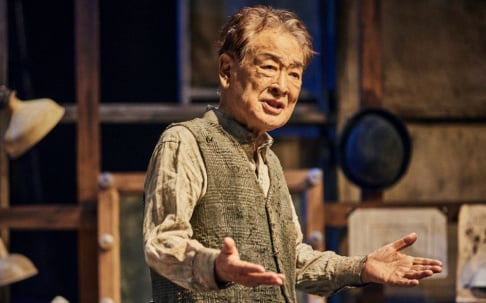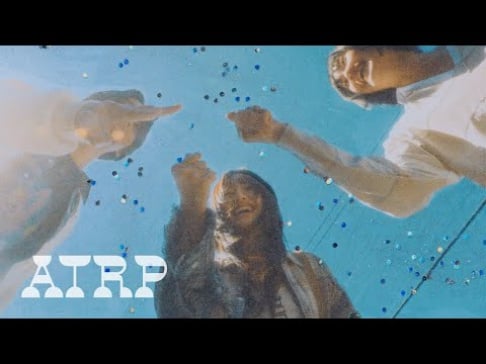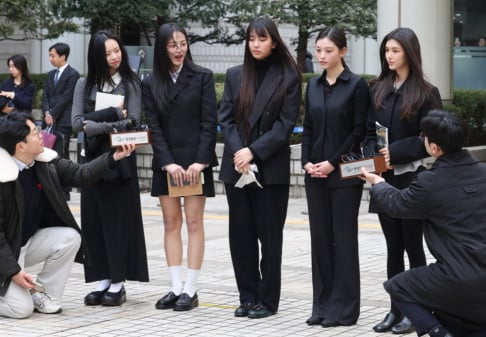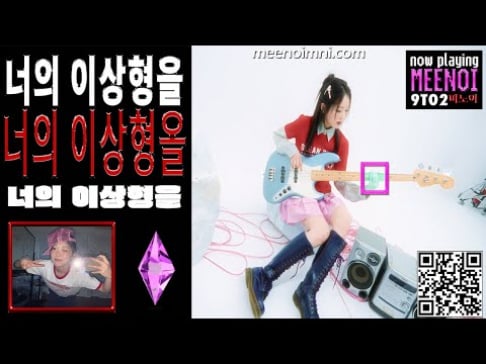
Jung Deok Hyun, a South Korean columnist recently wrote an article with the title "Is it impossible for idol groups to grow without the essence of survival in the show I-LAND". In the article, he talked about the different aspects that differentiate the show 'I-LAND' and why the essence of survival was needed to make the contestants of 'I-LAND' grow.
He begins his article stating that this is more of a survival show than an audition program as the contestants are stranded in a place called the I-LAND. The contestants have to use various abilities and performances to 'solve' the missions given to them. The show starts with twenty-three trainees showing up to a place called I-Land as viewers are taken to a futuristic time and place. There is fear and excitement in the faces of each contestant as they make their way into the unknown place called 'I-LAND' that is behind the grand gate.

The name 'I-LAND' is speculated to symbolize the "The world of Idols" and somewhat amplifies the intensity and angst of a survival program. Also, the moving platform to enter into the I-Land add anxiety as the contestants need to stand while the floor moves to bring them into the area. The moving floor was a fascinating aspect of the show but it increases the anticipation and nervousness to the contestants as they have to wait in the stillness.
However, what heightens the anxiety of the contestants the most is that there is no actual person who hosts the show. Instead, the contestants are met with an unfamiliar voice as they make way into the strange new place. While the contestants have yet to get used to their environment, the same mechanical voice presents them with their first mission.
The contestants present their performance they prepared as a team in the mission then are made to vote for who enters into the I-Land. Only twelve out of the twenty-three are voted to enter into the main I-Land while the rest are brought to a place called Ground. With each new mission, the contestants are given assessment grades from the producers and can also vote for each other to be brought to the I-Land or sent to the Ground and vice versa.

In the pre-existing audition programs, contestants perform and sing or dance in front of judges, then the contestants are either qualified or dropped from the show depending on the judge's decisions. However, the contestants of 'I-Land' are divided into two groups - the I-Landers and the Grounders. After each mission, the contestants are given a chance to vote and the those with lower grade is voted out to the Ground. Therefore, the essence of survival is added to the show. What also differs from pre-existing audition show is that the contestants must go through each mission as a team. The trainees form bonds with each other as they shed tears when a member is voted off to the grounders. They also are able to build relationships with each other and show various emotions as they feel indebted to each other and depend on each other to complete each mission together.
Of course, the assessment grade of the producers is considered for the results of each mission. However, the vast difference is that the result also depends on the grade the trainees give each other. Also, the program adapts the process of training idols as producers point out mistakes and lacking of each contestant. The show 'I-LAND' combines the training system for idols in the entertainment agencies with the survival aspect of the audition program.

As in any idol audition programs, the trainees are harsh on themselves as they train and practice to survive, making their way to the final cut. However, the viewers are able to see how the trainees each grow through the process. The contestants who make their way into the I-Land are provided the best circumstances and environment to train while the contestants at the Ground are not provided with much. Therefore, making the contestants more eager to survive.
Also, the viewers are able to see the emotions, contemplation, and ambition of each trainee as they go through this stressful competition. The viewers are able to see their painstaking process of completing each mission as they arduously practice to perfect their performance. Not only are the viewers able to see the ambition of each member, they are able to see the anxiety of the contestants who are brought to the Ground as they feel they will be left behind.
Many say that the "I-LAND" shows the micro-version of the world of Idols, where idol artists must survive in the real world. The idols themselves go through a series of survival as to not fall behind with mainstream popularity. Also, the idols at the top must strive not to lose the popularity they already have. Thus, the contestants of 'I-LAND' experience the same anxiety and uneasiness as they compete to remain on the I-LAND.

This competition program also incorporates the global voting system as they near the final rounds. There have been controversies of fabricating and manipulating voting results involving certain audition programs. Therefore, many also were wary this might happen with the 'I-LAND'. However, the production team of the 'I-LAND' has put their best efforts to differentiate themselves from the pre-existing shows.
The format of the 'I-LAND' combines the actual process of being a trainee and compacts the world of Idols as they portray the micro-world of survival that an idol artist needs experience. Many netizens wonder if the essence of survival is needed to create idol groups in this show. However, idol trainees and idols all go through a form of competitive survival as they reach their success.
Therefore the show 'I-LAND' displaying and portraying such aspects of the idol world has brought about a fresh new show to viewers.
Currently, 'I-LAND' has gained much popularity with viewers of 1.1 million worldwide and also has had 167 countries participate in the global voting event, which started on the 24th of July.
 SHARE
SHARE











































This article sounds so complicated, i lowkey didnt mind when it was simply just judges or viewers voting and pple get eliminated each week.